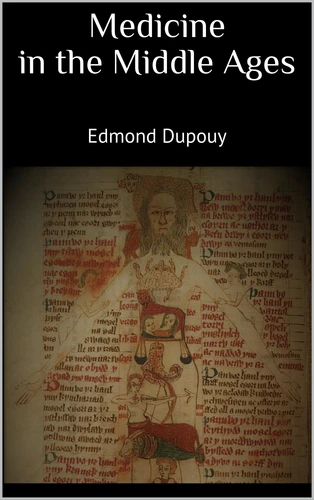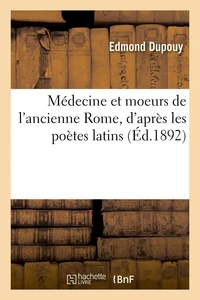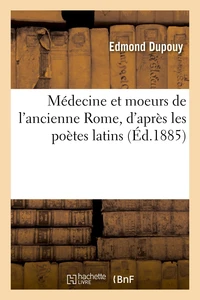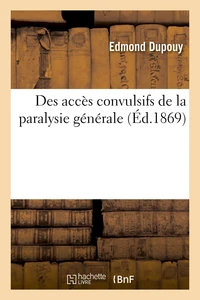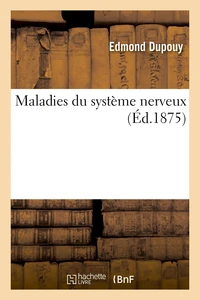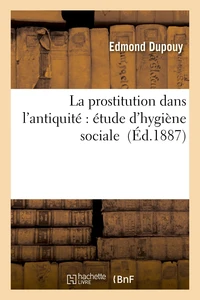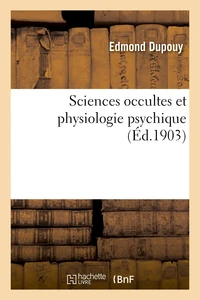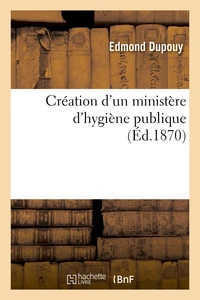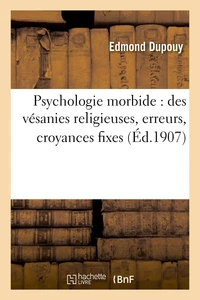Medicine in the Middle Ages
Par :Formats :
Disponible dans votre compte client Decitre ou Furet du Nord dès validation de votre commande. Le format ePub est :
- Compatible avec une lecture sur My Vivlio (smartphone, tablette, ordinateur)
- Compatible avec une lecture sur liseuses Vivlio
- Pour les liseuses autres que Vivlio, vous devez utiliser le logiciel Adobe Digital Edition. Non compatible avec la lecture sur les liseuses Kindle, Remarkable et Sony
 , qui est-ce ?
, qui est-ce ?Notre partenaire de plateforme de lecture numérique où vous retrouverez l'ensemble de vos ebooks gratuitement
Pour en savoir plus sur nos ebooks, consultez notre aide en ligne ici
- Nombre de pages299
- FormatePub
- ISBN978-3-7519-5460-0
- EAN9783751954600
- Date de parution11/12/2020
- Protection num.Digital Watermarking
- Taille528 Ko
- Infos supplémentairesepub
- ÉditeurBooks on Demand
Résumé
In the fourth century of the Christian era Roman civilization expired; Western Europe was invaded by the barbarians; letters and science sought a last refuge at Alexandria; the Middle Age commenced.
Greek medicine strove to survive the revolution in the city of the Ptolemies, and even produced a few celebrated physicians, i.e. , Alexander Ætius, Alexander Trallian, and Paulus Ægineta, but at the end of the seventh century the school of Alexandria also fell and disappeared in the clouds of a false philosophy, bequeathing all Hippocratic traditions to the Arabs, who advanced as conquerors to the Occident.
The Arabian schools of Dschondisabur, Bagdad, Damascus, and Cordova were founded and became flourishing institutions of learning, thanks to a few Nestorian Greeks and Jews who were attracted to these centers of learning; such men as Aaron, Rhazes, Haly-Abas, Avicenna, Avenzoar, Averrhoes, Albucasis, and other writers, who continued the work left by the Greeks, leaving remarkable books on medicine and surgery.
Unfortunately the ordinance of Islamism prevented these scientists from following anatomical work too closely, and consequently limited the progress they might otherwise have made in medicine.
The Arabian schools of Dschondisabur, Bagdad, Damascus, and Cordova were founded and became flourishing institutions of learning, thanks to a few Nestorian Greeks and Jews who were attracted to these centers of learning; such men as Aaron, Rhazes, Haly-Abas, Avicenna, Avenzoar, Averrhoes, Albucasis, and other writers, who continued the work left by the Greeks, leaving remarkable books on medicine and surgery.
Unfortunately the ordinance of Islamism prevented these scientists from following anatomical work too closely, and consequently limited the progress they might otherwise have made in medicine.
In the fourth century of the Christian era Roman civilization expired; Western Europe was invaded by the barbarians; letters and science sought a last refuge at Alexandria; the Middle Age commenced.
Greek medicine strove to survive the revolution in the city of the Ptolemies, and even produced a few celebrated physicians, i.e. , Alexander Ætius, Alexander Trallian, and Paulus Ægineta, but at the end of the seventh century the school of Alexandria also fell and disappeared in the clouds of a false philosophy, bequeathing all Hippocratic traditions to the Arabs, who advanced as conquerors to the Occident.
The Arabian schools of Dschondisabur, Bagdad, Damascus, and Cordova were founded and became flourishing institutions of learning, thanks to a few Nestorian Greeks and Jews who were attracted to these centers of learning; such men as Aaron, Rhazes, Haly-Abas, Avicenna, Avenzoar, Averrhoes, Albucasis, and other writers, who continued the work left by the Greeks, leaving remarkable books on medicine and surgery.
Unfortunately the ordinance of Islamism prevented these scientists from following anatomical work too closely, and consequently limited the progress they might otherwise have made in medicine.
The Arabian schools of Dschondisabur, Bagdad, Damascus, and Cordova were founded and became flourishing institutions of learning, thanks to a few Nestorian Greeks and Jews who were attracted to these centers of learning; such men as Aaron, Rhazes, Haly-Abas, Avicenna, Avenzoar, Averrhoes, Albucasis, and other writers, who continued the work left by the Greeks, leaving remarkable books on medicine and surgery.
Unfortunately the ordinance of Islamism prevented these scientists from following anatomical work too closely, and consequently limited the progress they might otherwise have made in medicine.

